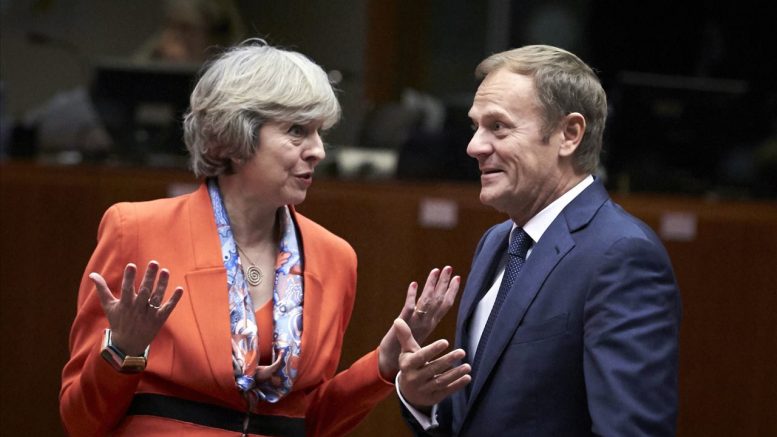In the raging debate about the “crisis” gripping Western democracies, one set of voices has been noticeably silent.
What might be best termed as the “moderate right” – a political category in which chief executives might regard themselves as most comfortably fitting – has almost disappeared from the political conversation.
As the extremes – especially on the far right – have stormed the political stage that is now so accessible through social media, the loud, angry populist chorus of protest and complaint is drowning out voices of reason and restraint.
Against these forces that so readily use threats and intimidation to silence dissenting voices, it is very easy to decide either not to respond or not to get involved at all in the conversation.
It is also obvious that to the right-of-centre, many who might be voices of reason have chosen to bite their tongues and to be pulled along in the political slip-stream of those louder voices to the right of them in the hope of getting a political benefit.
The result is that the political balance is tipping further to the right than is healthy or necessary and which, if it continues unchecked, will put at risk the great progress that has been undeniably made – in Europe especially – since the end of World War II.
It is also obvious that many who could speak up but who are remaining silent in spite of being aware of these dangers are doing so because they have been beneficiaries of some of the key underlying causes of the community discontent that is fueling the rise of the right-wing populists.
To ordinary salary earning citizens – and to those who have not had jobs since the shock waves of the GFC resulted in industries being closed and workers being retrenched – it looks like they are being played for mugs.
At the heart of the loss of public confidence in the “system” has been the sense among ordinary working people that they are being left behind and forgotten by the political, business and economic “elites”.
The fundamental cause of this is growing inequality in incomes and wealth, now a three-decade long trend throughout the market economies of Western democracies. The French economist, Thomas Piketty, has documented these trends compellingly.
While the gap between the top and the bottom is not as marked in Europe as in the US, the Organisation for Economic Co-operation and Development (OECD) estimates that the disposable incomes earned by the top 10 per cent on the remuneration scale in Europe are now, on average, 9.6 times greater than those of the lowest 10 per cent.
The salaries of Europe’s top bank executives have risen to an average €9.66 million in the past year when ordinary wage incomes were stagnant.
The gap has opened dramatically since the late 1980s, both as a result of soaring executive salaries and tax minimisation, avoidance and evasion.
At the same time, there has been a reduced redistributive effort by governments, in large part due to relative declines in tax collections due to aggressive tax minimisation. The European Commission estimates that more than one trillion euros a year in revenue is now being lost to tax evasion, avoidance and tax minimisation schemes.
Since the end of the global financial crisis (GFC), in many business sectors, chief executives have seen their salaries rise dramatically at the same time as the private sector economy has stagnated.
To ordinary salary earning citizens – and to those who have not had jobs since the shock waves of the GFC resulted in industries being closed and workers being retrenched – it looks like they are being played for mugs.
The feeling of powerlessness is becoming corrosive, especially in the European Union, where citizens feel remote from Brussels’ power centre and believe that their own governments have deserted them.
There is no better way to bust community cohesion than to have a privileged elite being set apart from the rest of the community. There is no surer way of accelerating this process than by the privileged elite showing absolute contempt for the complaints and objections of the majority who are left behind.
There are none more foolish than those who don’t heed the warning signs that the resentment is building.
This, however, appears to be the case across the Western democracies. And in Europe, given its 20th century experience of the consequences of soaring inequality and social disruption, those who are ignoring the warning signs are especially culpable.
Business leaders and the organisations that represent them – including the centre-right political parties – are failing to recognise the parallels with the past or their obligation to provide leadership in the cause of avoiding the risk of history repeating itself.
A Thatcherite revolution in France would hardly seem to be the answer to public resentment about the growing gap between the haves and the have nots.
When British Prime Minister Theresa May acknowledged the “irrational, unhealthy and growing gap” between ordinary workers’ and chief executives’ incomes, that was the time for business leaders to recognise there was a problem and offer to respond. Instead, it seems she is retreating in the face of fierce resistance to the idea that there should be any interference in the “free market” of executive salary setting.
It does not require business and its political representatives to abandon liberal economics to acknowledge that something has gone wrong with executive remuneration and with the tax system – to recognise the legitimacy of public dismay at the imbalances that have developed in both.
In France, if François Fillon heads off the threat the Front National poses, the French right will have achieved a significant victory for the existing political order against the rise of the populist far right.
But what will a Fillon administration do – apart from mimic Marine Le Pen on immigration and Islam – to respond to the economic problems that have created the climate in which those two issues have festered?
A Thatcherite revolution in France would hardly seem to be the answer to public resentment about the growing gap between the haves and the have nots.
The void in the European political conversation where there should be voices calling for corporate restraint and responsibility will still need to be filled.
By Geoff Kitney





